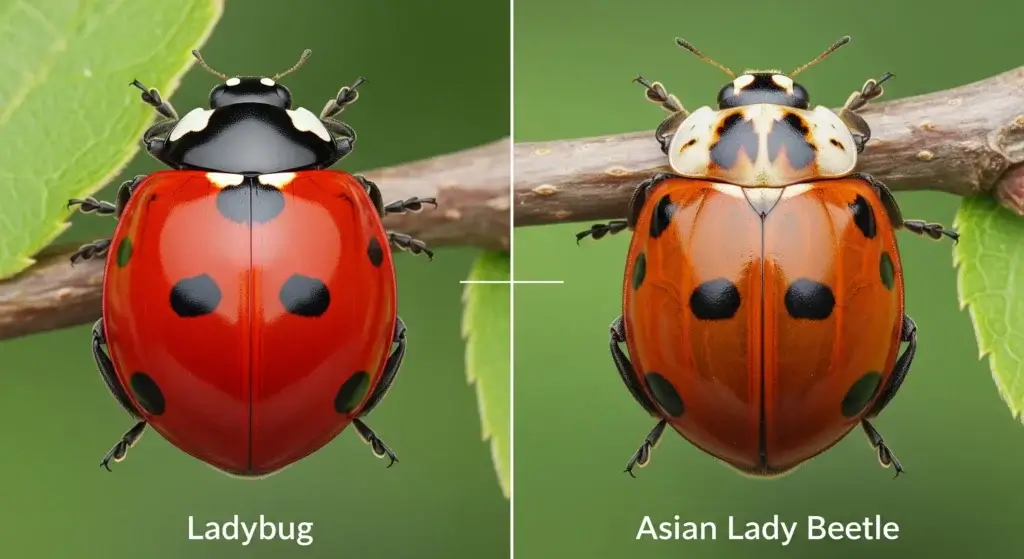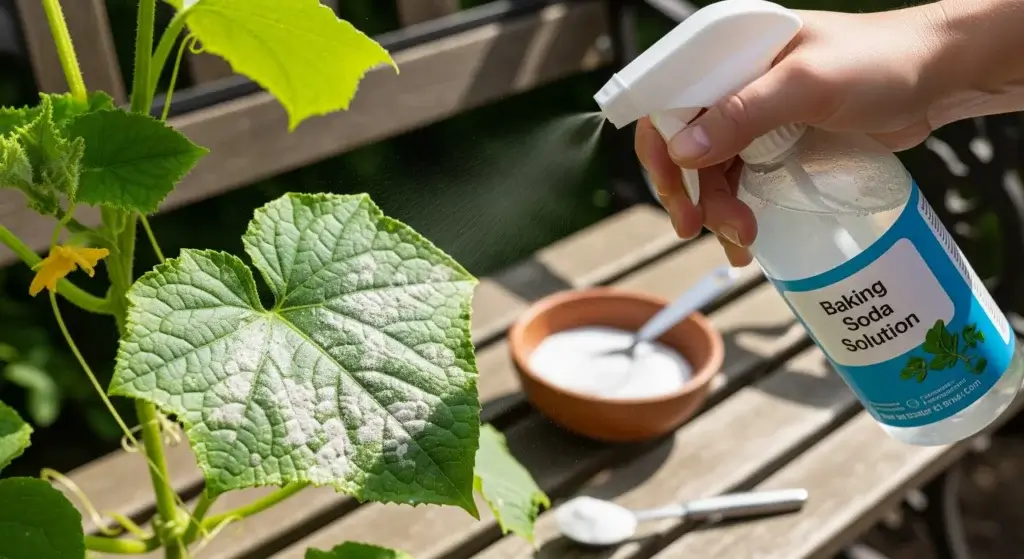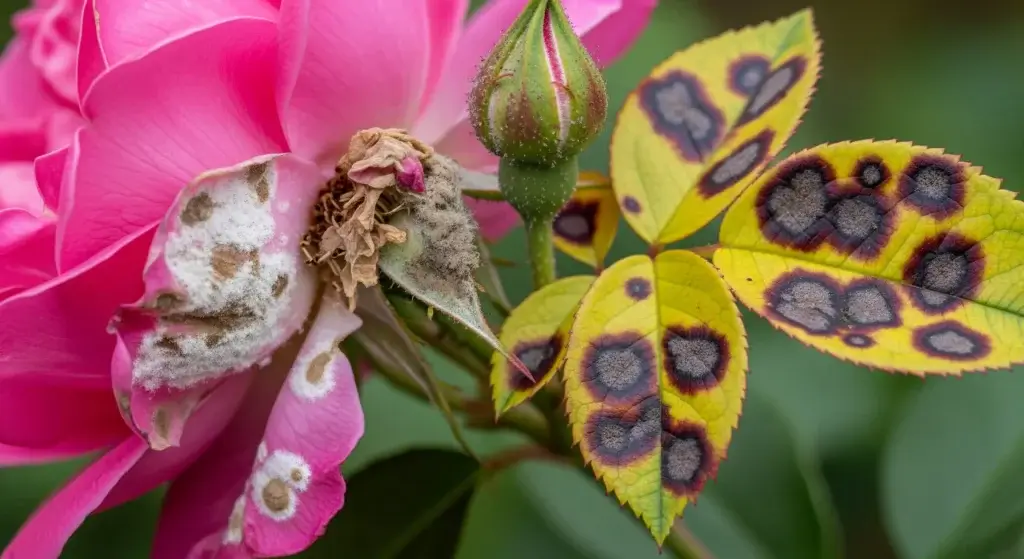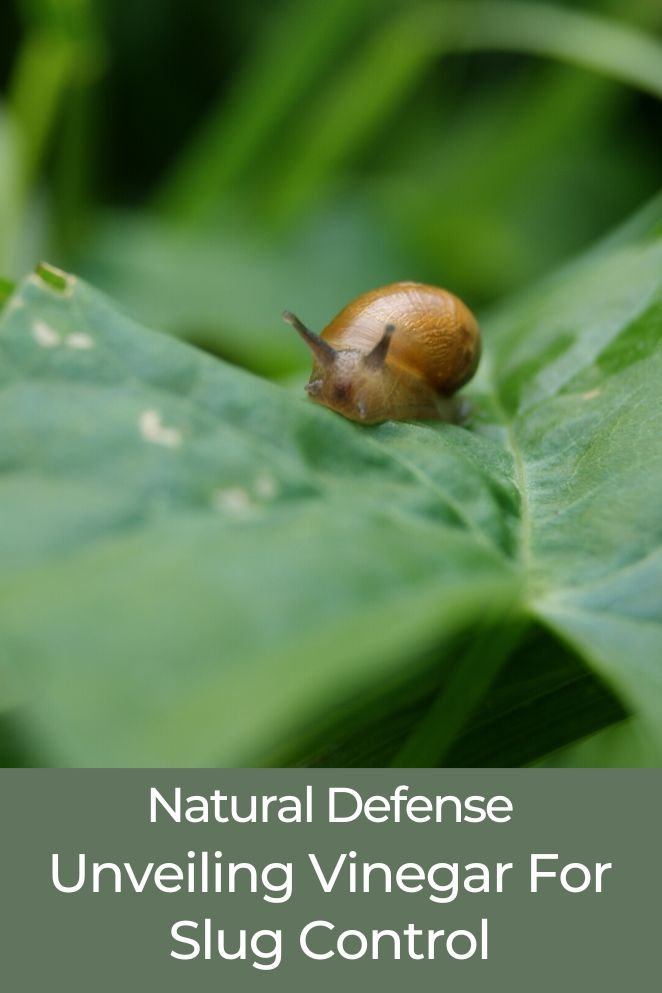
The intrusion of slugs can put a damper on the joy of nurturing your plants.
Yet, there’s a solution right in your kitchen – vinegar.
In this guide, we’ll explore the world of vinegar slug control and its transformative impact on creating a garden that is free from slugs.
Knowing Deeper About Slugs
Nocturnal animal
Slugs are creatures of the night, thriving under the cover of darkness.
They emerge when the sun sets, making it challenging for gardeners to detect and address their presence promptly.
This nocturnal behavior contributes to their elusive nature and the difficulty in managing their impact.
- Read also: A Guide to Organic Whitefly Control
- Read also: Ladybugs for Effective Aphid Control
Moisture-loving nature
Slugs are moisture enthusiasts, thriving in damp and humid conditions.
Their preference for moisture-rich environments makes gardens, especially after rainfall, an ideal habitat.
Mucus production
Slugs create various types of mucus-slimy substances, each serving different purposes.
For instance, they use a dense, adhesive slime to stick to surfaces, a liquid slime to slide smoothly over surfaces, and a protective slime that can cause irritation to ward off predators.
Herbivores
Slugs, for the most part, have a vegetarian diet, munching on leaves, fruits, and vegetables.
Interestingly, certain types of slugs also act as scavengers, consuming deceased and decomposing organic material.
Varied diet
Slugs are not picky eaters.
They have an insatiable appetite and can feast on a wide range of plants, from tender seedlings to robust vegetables.
Hostas, lettuce, and strawberries are among their favorite delicacies.
This broad dietary spectrum makes them formidable foes for gardeners.
Reproductive prowess
Slugs are hermaphrodites, meaning they have both male and female reproductive organs.
They can mate with each other, and each individual lays eggs.
Slugs are prolific reproducers, with some species capable of laying hundreds of eggs in a season.
This rapid reproduction contributes to their population growth, making it imperative for gardeners to implement effective control measures to prevent a surge in slug numbers.
Adaptability to environments
Slugs exhibit a remarkable adaptability to various environments.
Whether your garden is adorned with flowers or boasts a variety of vegetables, slugs can find a way to navigate and exploit the resources available.
Hibernation
In cold climates, slugs hibernate during the winter.
They burrow underground or find other sheltered locations and become inactive until the weather warms up.
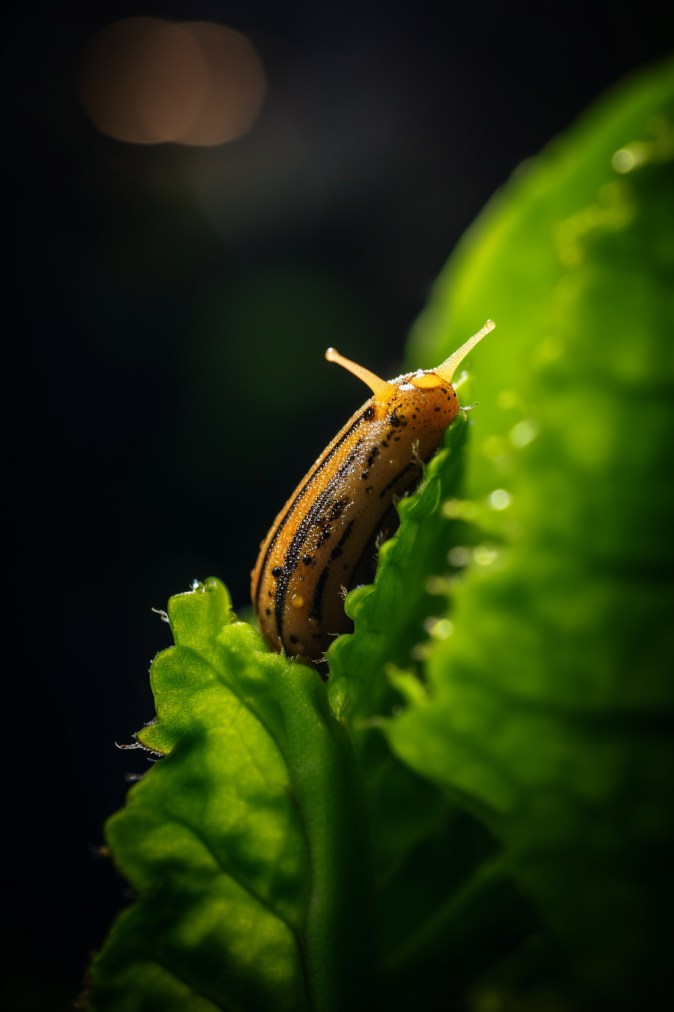
How to Control Slugs with Vinegar
Crafting a simple yet powerful vinegar spray. Here’s a straightforward recipe to get you started.
Ingredients
- Water
- Vinegar
The type of vinegar isn’t critical, so you can use white vinegar, apple cider vinegar, or any other variety you have on hand.
- Spray bottle
Ensuring it’s clean and free from any residue of chemicals or other substances.
How to make vinegar spray
- Combine the water and vinegar in the spray bottle.
- Shake it well to ensure thorough mixing.
Application techniques
Direct contact
Using a mixture of 50% vinegar and 50% water directly on slugs can effectively dehydrate and eliminate them upon contact.
It’s crucial to ensure direct application for optimal results, as weaker solutions may allow slugs to recover.
Barrier
You can create a diluted vinegar solution by mixing 1 part vinegar with 3 parts water to form a temporary barrier around plants.
This mixture deters slugs with its acidic smell. Keep in mind that the effectiveness diminishes with rain or evaporation, so regular reapplication is needed to maintain the deterrent effect.
Why is Vinegar Effective as a Slug-Repellent
Acidity
Vinegar’s acidity disrupts the slimy mucus layer that slugs depend on for protection and movement.
This not only dehydrates them but can also cause burns, making it challenging for them to navigate and feed on your valuable plants.
Smell
Similar to many creatures, slugs possess a strong sense of smell, and the potent aroma of vinegar isn’t appealing to them.
The robust acetic acid fumes serve as an effective deterrent, dissuading them from approaching areas treated with vinegar.
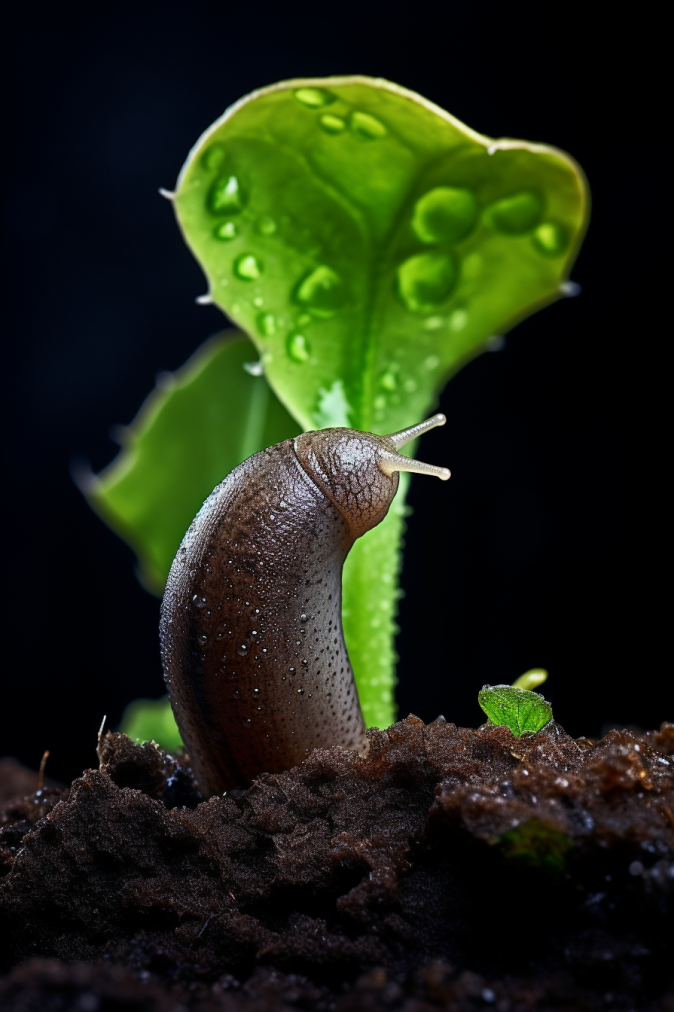
Pros of Using Vinegar as A Slug Repellent
Natural and non-toxic
Vinegar is a natural solution, free from harmful chemicals commonly found in synthetic pesticides.
It provides a safe alternative for both your plants and the environment.
Readily available
Vinegar is easily accessible and likely already present in your kitchen.
Its affordability and widespread availability make it a convenient option for slug control.
Effective deterrent
When used directly on slugs, it can dehydrate and kill them.
The strong smell and taste of vinegar act as a potent deterrent for slugs.
Its acetic acid content disrupts their sensory perception, making treated areas less appealing to these garden invaders.
Versatile application
Vinegar can be applied as a spray directly onto plants or used to create barriers around vulnerable areas.
Its versatility allows for targeted and strategic application.
Cons of Using Vinegar as A Slug Repellent
Temporary effectiveness
Although vinegar is successful in keeping slugs away, its effects might not last for an extended period.
You may need to reapply it, particularly after rain or watering, to ensure it continues to effectively deter slugs from your garden.
Potential impact on soil pH
Because vinegar is acidic, it has the ability to gradually reduce the pH of the soil.
While using it occasionally may not pose major problems, excessive and frequent application has the potential to impact the overall chemistry of the soil.
It’s important to be mindful of the balance to maintain a healthy soil environment.
Unpleasant odor
The potent smell of vinegar might not sit well with some gardeners.
It’s a good idea to use solutions containing vinegar in places with good ventilation or at times when the smell is less bothersome.
This way, you can still enjoy the benefits without the inconvenience of the strong odor.
Avoidance by beneficial insects
While vinegar is a natural solution, it might not selectively target slugs.
Beneficial insects in the garden may also be deterred by the scent, potentially disrupting the balance of the ecosystem.
Plant damage
Applying too much vinegar can result in unintended problems, like harming your plant leaves.
It’s important to stick to the recommended dilution ratios and follow application guidelines to prevent any damage.
Concentrated vinegar solutions have the potential to burn sensitive leaves and stems, so it’s advisable to do a small test in a specific area first to ensure the well-being of your plants.
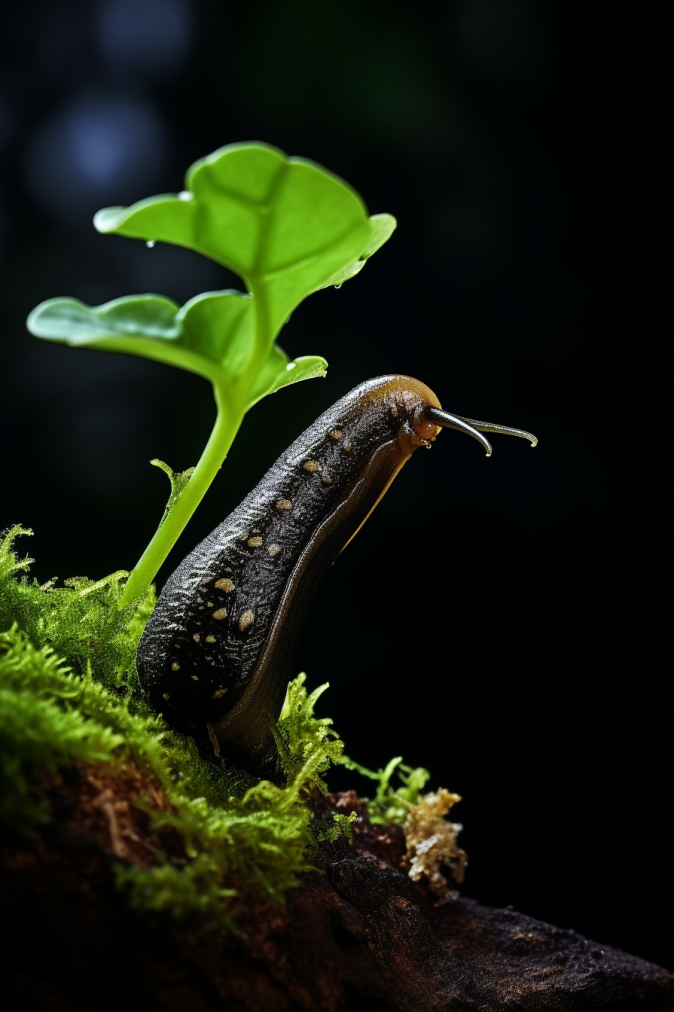
- Read also: Natural Pesticides for Vegetable Garden
- Read also: Natural Pesticides for Indoor Plants
Conclusion
Picture your garden as a grand symphony, where vinegar takes center stage as a protector against slugs, creating a harmonious note.
Embrace this natural method of slug control and observe how it transforms your green haven into a thriving oasis.
Frequently Ask Questions
While white vinegar is commonly used, other types like apple cider vinegar can also be effective. Experiment to find what works best for your garden.
Apply the vinegar spray as needed, especially after rainfall or when slug activity is high. Monitor your garden regularly for signs of slug damage.
When used in moderation, vinegar is generally safe for plants. However, it’s important to dilute it properly to avoid any potential adverse effects.

